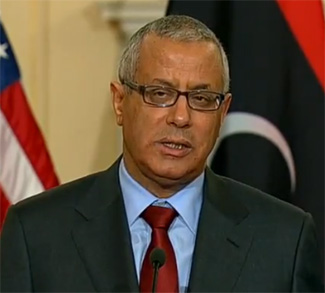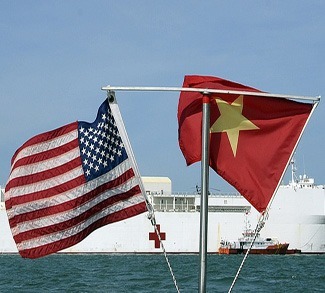In July, the CCP invited leaders from four of Myanmar’s political parties to Beijing as part of China’s push for elections in Myanmar. Junta leader Min Aung Hlaing has promised elections in 2025, and China has pledged its support. However, this move by Beijing is one of expediency, not benevolence.
Beijing Changes Tact as Myanmar Civil War Drags On
China’s interest in Myanmar has always been primarily economic, with significant investments in infrastructure through the China-Myanmar Economic Corridor, part of the Belt and Road Initiative. This corridor connects China’s southern Yunnan province with Southeast Asia and the Indian Ocean. Chinese investments also focus on securing natural resources, including timber, metals, rare earth elements, gems, electricity, and oil and gas via the China-Myanmar Oil Pipeline.
China has repeatedly called for a ceasefire and negotiated multiple agreements, all of which collapsed due to the failure to address the genuine grievances of the various groups and ethnic armies in Myanmar. Most recently, Beijing has been calling for unity, but these efforts lack authenticity and reflect a poor understanding of the current phase of the Myanmar civil war.
Beijing’s preference for democratic elections seems surprising given that China traditionally opposes the presence of a democracy on its borders, preferring instead to deal with an all-powerful junta, free from human rights concerns or parliamentary limits. As China itself isn’t a democracy, it usually isn’t typically concerned with promoting democracy in other countries.
Thus, the recent tonal shift is telling: it suggests that Beijing may no longer believe that the junta can regain control, and instead views elections as the most practical way to stabilize the country and protect Chinese investments.
The junta originally planned to hold elections much sooner, but they have been postponed multiple times, with Min Aung Hlaing stating that elections can only happen once peace is restored. If the elections do eventually occur, they can be expected to be deeply flawed or even meaningless. Min Aung Hlaing has indicated that they may only take place in areas controlled by the Tatmadaw, which currently equates to about 30% of the country.
Main Players in China’s Hypothetical Election
Only parties registered with the election commission would be allowed to participate in elections. The National League for Democracy (NLD), the main pro-democracy party, has already been barred, dissolved, and its remaining leaders in Myanmar jailed. Those who fled formed the National Unity Government (NUG) in exile, which is aligned with numerous ethnic armies and represents a large portion of the population. However, the NUG was not invited to the recent Beijing meeting and is likely to be excluded from the election as well.
Myanmar is home to 135 ethnic groups, many with their own ethnic armies and political parties. In the 2020 election, there were 90 political parties; however, at least 40 were forcibly dissolved by the junta after the coup. This raises the question of why the Union Solidarity and Development Party (USDP), People’s Party, Arakan Front Party (AFP), and Shan and Ethnic Democratic Party (SEDP) were chosen by Beijing. All four are registered with the junta’s State Administration Council (SAC) and none are aligned with the pro-democracy National Unity Government (NUG) in exile. Their proximity to Chinese investments and relationships with the SAC also make them favorable choices.
China’s aim may be to ensure that these ethnic parties either collaborate with or remain neutral toward the junta, preventing conflicts that could disrupt Beijing’s long-term economic planning.
The Union Solidarity and Development Party (USDP) is a pro-military party closely aligned with the SAC. Founded by the military, many of its leaders are former military officers. Since the coup, the USDP has supported the military’s actions and is not a democratic party. It is aligned with pro-government militias, Border Guard Forces (BGF), and other Tatmadaw-linked groups.
The People’s Party emerged from the pro-democracy movement, but its current role is less defined. While not overtly aligned with the SAC, it may be operating within the constraints set by the junta. After the 2021 coup, its leader, U Ko Ko Gyi, committed to continuing a non-violent political struggle but later endorsed the junta’s proposed election plan alongside pro-military parties. Though less connected to the SAC than the USDP, the People’s Party cannot be classified as a true pro-democracy resistance group.
The Arakan Front Party (AFP), based in Rakhine State, broke away from other pro-democracy parties and rejected the National League for Democracy. Its relationship with the SAC is complex. While the AFP aims to represent Rakhine ethnic interests, it has shown a pragmatic willingness to work with the SAC, particularly in negotiating for greater autonomy. Though not explicitly pro-junta, the AFP may collaborate with the SAC when it serves its regional objectives.
The Shan and Ethnic Democratic Party (SEDP) represents the Shan people and engages pragmatically with the State Administration Council (SAC) to advance the group’s interests. It is not strongly opposed to the SAC and often takes an opportunistic stance rather than aligning with pro-democracy movements. In Shan State, the SEDP shares common goals with ethnic armies like the Restoration Council of Shan State/Shan State Army-South (RCSS/SSA-South) and the Shan State Progress Party/Shan State Army-North (SSPP/SSA-North). While the RCSS/SSA-South has signed a Nationwide Ceasefire Agreement (NCA) with the government, tensions with the military persist, especially with the SSPP/SSA-North, which has not signed the NCA but maintains a truce with other Shan armies. None of the major Shan armies are currently engaged in active fighting with government forces. Overall, the SEDP and Shan ethnic armies often cooperate with the military rather than fully opposing it.
Economic Interests Underpin China’s Pivot
Significant Chinese investments are in the areas where these political parties hold sway. Aligning with the USDP helps secure China’s investments in Mandalay, Yangon, and Sagaing. In Mandalay, a key transit hub for Chinese goods, Chinese investment in infrastructure—roads, bridges, and industrial zones—supports trade routes connecting Yunnan Province to the Indian Ocean. Similarly, in Yangon, China’s involvement in real estate and infrastructure development, such as the Yangon New City project and port expansions, strengthens its foothold in Myanmar’s commercial capital, boosting trade and manufacturing.
In Sagaing, Chinese companies are involved in controversial mining operations, particularly the Letpadaung copper mine, which has faced local opposition due to environmental and human rights concerns. While the USDP is meant to have control over the entire country, the reality is different in Rakhine and Shan states, where powerful ethnic armed organizations demand greater autonomy. To safeguard its long-term plans, Beijing is hedging its bets by engaging with parties from these regions as well.
The inclusion of the Arakan Front Party (AFP) and Shan and Ethnic Democratic Party (SEDP) helps secure China’s investments in Rakhine and Shan States. In Rakhine, the Kyaukphyu Special Economic Zone (SEZ) and deep-sea port are among China’s most crucial projects in Myanmar. As part of the Belt and Road Initiative, the Kyaukphyu SEZ gives China direct access to the Indian Ocean, reducing its reliance on the Strait of Malacca for oil and gas imports. Chinese goods and resources can be transported through pipelines and overland routes from Myanmar to Yunnan Province. The China-Myanmar Oil and Gas Pipelines, which originate in Kyaukphyu, are essential to China’s energy security and form a key part of the China-Myanmar Economic Corridor (CMEC).
Shan State is home to major Chinese hydropower projects, such as the Upper Yeywa and Shweli-3 plants, which provide electricity for Myanmar and are key to China’s energy strategy in Southeast Asia. The region also has Chinese interests in mining, including rare earth metals, tin, and other minerals vital for China’s technology and manufacturing sectors. Additionally, Shan State’s long border with China’s Yunnan Province makes it a critical area for border trade.
Conclusion
China’s decision to meet with these four parties indicates a strategy to legitimize the SAC’s proposed elections, which the NUG and international observers have rejected as neither free nor fair. By engaging with parties likely to participate in SAC-controlled elections, China shows its preference for stabilizing Myanmar under the junta rather than supporting the NUG’s pro-democracy efforts. The exclusion of the NUG, which represents the ousted government and maintains strong support among ethnic armies, suggests China is carefully avoiding groups that openly oppose the military regime. Ultimately, the move also distances China from Western influence, as the NUG has international backing, particularly from the U.S. and Europe. Engaging with the NUG could strain China’s relations with the junta and jeopardize its investments. Overall, China’s focus appears to be on maintaining influence with the military and key ethnic actors to ensure stability for its economic and geopolitical interests, while sidelining pro-democracy movements and positioning itself as a key external player in Myanmar’s future.




